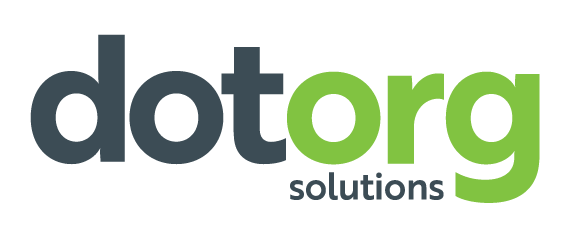The importance of nonprofit strategic planning in uncertain times
AUTHOR'S NOTE: This blog originally posted in January 2021. It was updated in January 2025 to be more in line with current events and include more relevant information.
Strategic planning during uncertain times may seem like the last thing your nonprofit wants to do or should do. But it is times like now or in anytime of uncertainty/transition that your leadership and board should make strategic planning a priority.
Why should we put together a strategic plan now? Shouldn’t we wait?
First, it is important to understand what your strategic plan is (and isn’t). Your strategic plan is a set of measurable goals, objectives and tactics designed to help your organization achieve its long-range vision and aspirations for the future. It’s not a substitute for your annual goals and plans, which support your strategic plan and include things you want to accomplish over the year.
Planning, whether short-term (annually), strategic (2-3 years) or long-range (3-10 years and beyond), is something that your nonprofit should be doing regularly.
In fact, now is the perfect time to engage in the strategic planning process. Why?
• The current climate may be forcing your organization to embrace a strategic mindset. So, you've already started.
• Your long-term goals may be changing
• The future will always be uncertain.
• Your team needs to know where it is headed.
• This too will end. You want to be ready for what’s next.
For more information, check out our “Practical Guide to Nonprofit Strategic Planning,” designed to help you and your organization better understand the strategic planning process, its role in your organization and how to implement a plan successfully.
The idea of funding and legislative changes are forcing your organization to embrace a strategic mindset.
The shift in a new political landscape may be forcing your team to think more strategically than ever. You may need to pivot, restructure, think more creatively about your programs or services and take time to fully assess everything you do to ensure your organization remains viable. This type of thinking is helping prepare your organization for strategic planning because you are already in a mindset that goes outside of day-to-day operations . Your leadership team and board may need to make decisions based on uncertainty and develop scenarios given different types of situations. If there are substantive changes, you will be looking at changes to current operations as well as where you want the organization to be in months and years to come.
Your long-term goals may have changed.
There is no question that the possibility of funding stoppages and other legislative changes will greatly impact the government, nonprofits, businesses and individuals. Some organizations will see greater impact than others. So, if legislative changes and executive orders changed your organization’s long-term vision, a strategic plan will help create focus for your organization with actionable strategies to help you get there in less time.
The future is always uncertain.
The phrases “uncertain times” and “unprecedented times” make my head hurt. I heard them way too much during the pandemic. But I learned a great lesson from Anjua Maximo, a life and health coach, and a panelist on one of our webinars. She said that the future is always uncertain whether no matter what is happening. When we set goals, we never know what will happen in the future. That cannot stop us from trying to achieve new things and accomplish big goals. I loved her analogy. It is so applicable to us in life and work.
Click here to watch our webinar on “Resilience for nonprofit professionals” with Anjua Maximo and Dr. Tracey Yaeger from Portage Path Behavioral Health.
Your team needs to know where it is headed.
The best way to gain the confidence of your team is to provide them with direction on where they are headed. This is true all the time, not just during times of major change or crisis. You as a leader must have a plan that outlines not only the vision, but the action. When you do, your team will know what is expected of them and will help you achieve those goals. Understanding where you are headed also gives your team hope that your organization will be sustainable in the future.
This too will end.
I’m an optimist and see there will be a time soon where we feel like our lives are more stable and that we can make decisions that aren’t based on what is best for our constituents, not the current political climate. So, your organization should seriously consider investing now in the strategic planning process, whether it is tweaking your current plan or developing a new one. You will likely see greater rewards in a shorter period of time than those who wait.
I applaud you and everyone in the nonprofit sector for the amazing work you do. It is likely, and completely understandable, that your organization may be “tired” right now. Nonprofits have carried a great burden since 2020 with increased needs for services, reduced funding, program changes and even staff reductions. The thought of engaging in more high-level work may seem exhausting.
Know that the work you do is important and that strategic planning during uncertain times is one of the best things you can do for your organization AND the people you serve. Keep up the great work and know that you are appreciated!
Want to learn more about how our Dot Org Solutions consultants can help with your strategic planning?
Contact us to learn more.

Amy Wong, president, Dot Org Solutions
Amy believes the world is a better place because of the special work that nonprofits do for our communities for making them better places to live, work and raise families. And as president of Dot Org Solutions, she is a champion for small businesses for the role they play in creating jobs, delivering important products and services, and keeping the economy strong.

